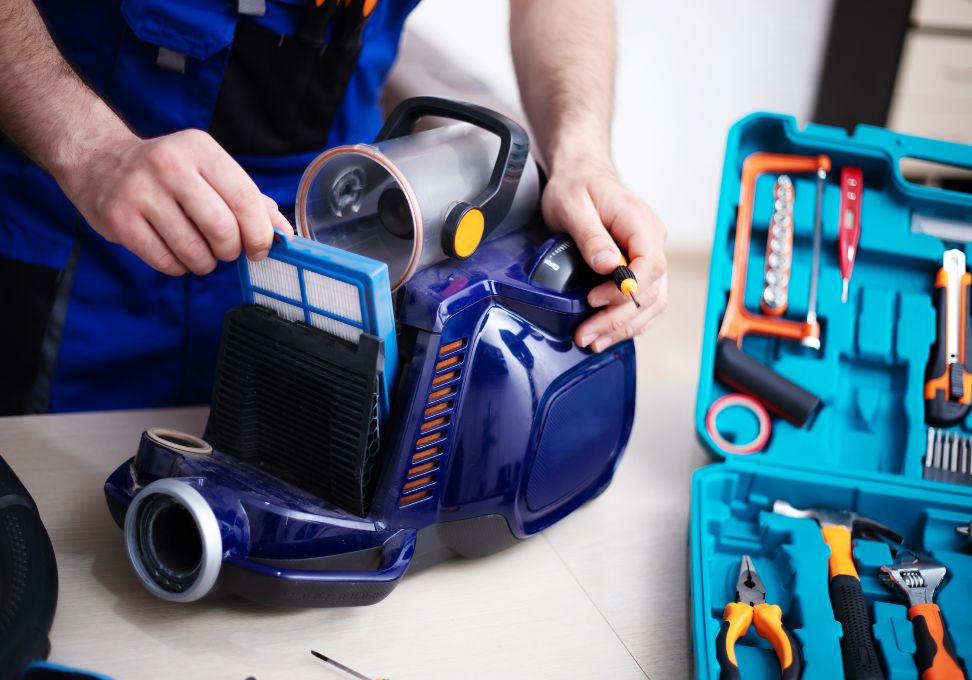Are Generic Appliance Parts Safe to Use?

When an appliance breaks down, homeowners often face a choice between using generic appliance parts or purchasing OEM (Original Equipment Manufacturer) components. While generic parts are typically less expensive and more readily available, many people wonder if they are safe and reliable for long-term use.
This article explains the safety and quality considerations around generic parts, compares them to OEM parts, and offers guidance to help homeowners make informed decisions for their appliance repairs.
Understanding Generic Appliance Parts
Generic parts, also called aftermarket or universal parts, are manufactured by third-party companies that are not affiliated with the original appliance maker. These parts are designed to fit a range of models or brands, often based on similar specifications.
Generic parts include items such as replacement knobs, door seals, heating elements, and switches. While some generic parts are high quality, others may vary in fit, materials, and performance.
Common Concerns About Generic Parts
Homeowners often ask if generic parts are safe to use. The main concerns usually revolve around:
- Fit and compatibility: Will the part fit properly and work as intended?
- Durability: How long will the part last compared to an OEM component?
- Safety: Are generic parts tested and certified to meet electrical or fire safety standards?
- Warranty: Does using a generic part affect the appliance or repair warranty?
These are valid questions that require careful consideration before proceeding with repairs.
Safety and Performance Considerations
1. Fit and Compatibility
A part that doesn’t fit correctly can cause additional damage or poor appliance function. Generic parts often aim for compatibility across many models, which can lead to variations in size, mounting points, or electrical connections.
Poor fit may cause leaks, improper heating, or mechanical stress that wears other components prematurely.
2. Durability and Materials
OEM parts are made to meet specific manufacturer standards. This includes the quality of materials, thickness of metals, and type of plastic or rubber used.
Generic parts may use lower-quality materials to reduce costs, potentially leading to:
- Faster wear and tear
- Reduced resistance to heat, moisture, or mechanical stress
- Increased chance of part failure or breakdown
3. Safety Certifications
OEM parts must pass strict quality and safety testing before installation. This ensures they comply with regulatory standards for electrical safety, fire resistance, and chemical use.
Generic parts vary widely. Some are made by reputable manufacturers that follow safety guidelines. Others may lack proper testing or certification, increasing the risk of electrical shorts, overheating, or fire hazards.
4. Impact on Warranty
Many appliance manufacturers require OEM parts to maintain the warranty. Using generic parts may void your warranty on the appliance or on the repair work.
Some repair companies will not honor labor warranties if a generic part is used. This means if the repair fails, you could face additional costs.
What Sets OEM Parts Apart From Generic Alternatives?
OEM parts are designed and tested specifically for your appliance model. They guarantee proper fit, reliable operation, and compliance with safety standards. OEM components come with a warranty and often extend the life of your appliance.
In contrast, generic parts can be a mixed bag. While some perform well, others are less reliable or safe. This variability makes it important to choose parts carefully.
When Are Generic Parts Safe and Appropriate?
Generic parts can be a safe choice in certain cases:
- Non-critical components: Items like knobs, shelves, or basic gaskets may be interchangeable with generic parts without affecting safety or performance.
- Out-of-warranty appliances: For older units, using generic parts can extend appliance life affordably.
- Reputable suppliers: Some third-party manufacturers produce high-quality parts with safety certifications and warranties.
- Temporary solutions: Generic parts may serve as short-term fixes while waiting for OEM parts to arrive.
When considering washer repair in Tampa, FL, always consult your technician to verify that the generic part meets your appliance’s specifications.
Tips for Using Generic Parts Safely
- Buy from trusted suppliers: Choose well-known parts distributors or appliance repair companies.
- Check for certifications: Look for UL, CSA, or other recognized safety marks.
- Verify fit: Confirm the generic part is compatible with your appliance model.
- Ask about warranty: Ensure the part comes with a warranty and understand how it affects your repair warranty.
- Work with licensed technicians: Experienced professionals can recommend safe alternatives and handle installation properly.
Potential Risks of Choosing Generic Parts
Using low-quality generic parts can lead to:
- Frequent breakdowns requiring repeat repairs
- Damage to other appliance components
- Voiding manufacturer or service warranties
- Safety hazards such as electric shocks or fire
The initial savings from cheaper parts may end up costing more over time due to reduced appliance life and reliability.
How to Decide Between OEM and Generic Parts
Consider the following questions:
- What is the appliance’s age and condition? Older appliances might justify generic parts; newer or high-end models should use OEM.
- Is the part safety-critical? Heating elements, compressors, and electrical components should be OEM.
- What is your budget? OEM parts cost more but offer peace of mind; generic parts save money upfront but come with risks.
- Can the repair technician guarantee the repair with a generic part? Ask about warranties and service guarantees.
Final Thoughts
Generic appliance parts can be safe when chosen carefully and used appropriately. However, they vary widely in quality and safety. When safety, durability, and warranty coverage are priorities, OEM parts are the best option.
By understanding what sets OEM parts apart from generic alternatives, homeowners can make informed decisions that protect their appliances, budgets, and homes. Always consult with a qualified appliance repair professional, such as Mr. Appliance of Tampa Bay, Florida, to determine the best parts choice for your specific situation.
A well-informed decision leads to reliable repairs and appliances that perform as intended for years to come.
